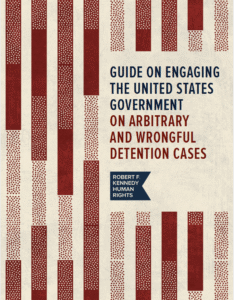The crackdown on freedom of speech and expression continues in Egypt. This last weekend an Egyptian-German academic was denied entry and a social and political cartoonist was arrested and detained for 24 hours.
Upon arrival to the Cairo Airport on January 29, Egyptian-German academic Dr. Atef Botros was detained by airport authorities and interrogated about his activities with the Mayadin al-Tahrir Initiative. His arrest allegedly took place after a security report was released by the Egyptian Embassy in Berlin detailing his criticisms of the government. Although Dr. Botros staged an overnight sit-in in protest to his “entry ban” stamp, he was returned the next morning. Reports suggest he is banned from ever entering Egypt again.
This is not the first time Egypt’s crackdown has extended to the academic community. In December 2015, researcher, academic, and freelance journalist Ismail Alexandrani was detained at the Hurghada Airport after his participation in a Berlin conference. Following an eight-hour interrogation, Alexandrani was charged with “joining a group established in violation of the law to disrupt the constitution, laws and the work of state institutions and authorities,” spreading false news, and disturbing the public peace. He remains in detention.
Just one day after the incident with Dr. Botros, security forces stormed the offices of social and political cartoonist Islam Gawish, arrested him, and confiscated computers. Gawish has published cartoons commenting on politicians and the government. Sources at the Ministry of Interior claimed Gawish was being questioned for running a website and Facebook page without proper licensing, disseminating false news, and possessing pirated software. Nearly 24 hours after his arrest, Gawish was ordered released by the prosecution and was never officially charged; during his questioning however, he was accused of creating cartoons that insult the regime.
Gawish’s arrest comes in the wake of an increased crackdown on the arts in Egypt. In the weeks leading up to the fifth anniversary of the January 25 Revolution, novelist Ahmed Naje was put on trial —although eventually acquitted—for “obscene public decency” when publishing an excerpt of his novel. Merit Publishing House was searched and raided by authorities. Contemporary art centers Townhouse Gallery and Rawabet Theater were shuttered following surprise inspections.
The Arabic Network for Human Rights Information documented 343 violations of the right to freedom of expression in Egypt throughout 2015. One incident included the recent sentencing of Amr Nohan to three years in prison by a military court after creating and sharing an image of Egyptian President Abdul Fattah El-Sisi with Mickey Mouse ears. The detention of Robert F. Kennedy Human Rights client Mahmoud Hussein also continues to be renewed, despite the fact that he has spent over two years in pretrial detention—the maximum allowed by the Egyptian Criminal Procedure Code. He was arrested for wearing an anti-torture t-shirt and a January 25 Revolution scarf.
While the crackdown on freedom of speech and expression continues to take new forms in Egypt from cartoons to t-shirts, these incidents violate Egypt’s Constitutionand international legal obligations under the International Covenant for Civil and Political Rights and the African Charter on Human and Peoples’ Rights.
Most importantly, they are a reminder that we must continue working to guarantee freedom of expression in Egypt.




